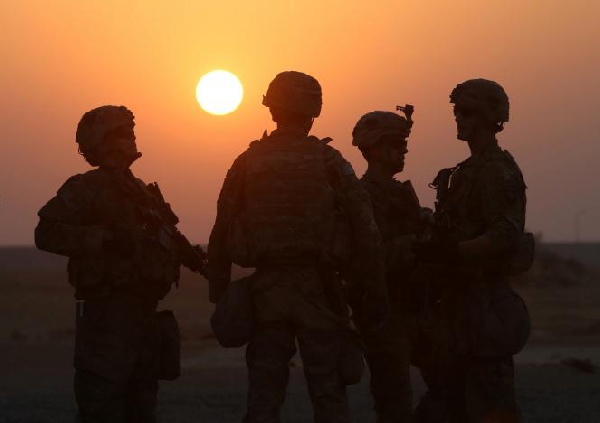
NIAMEY, March 17 (NNN-AGENCIES) — The military junta ruling Niger — which until last year was seen as a major ally of the United States in West Africa — announced Saturday on state television that it was ending its military relationship with the United States.
The announcement by a spokesman for the junta government, which overthrew Niger’s democratically elected president last year, came directly on the heels of a visit to the capital Niamey by U.S. Assistant Secretary of State Molly Phee, the State Department’s top official for African affairs, and Gen. Michael E. Langley, who heads U.S. military operations in Africa.
That mission was among diplomatic efforts by the United States to find ways to work with military governments in the region, where violence wrought by Islamist extremists has, in recent years, rapidly escalated.
But in the statement read on television, Amadou Abdramane, the junta’s spokesman, said the Nigerien government “denounced with force the condescending attitude” of the head of the recent U.S. delegation, which he said had undermined the long relationship between the two countries.
The government, he said, was “denouncing with immediate effect” the accord between Niger and the U.S. military, along with civilians working for the Defense Department.
“The American presence on Niger’s territory is illegal and violates all constitutional and democratic rules,” Abdramane said, adding that the citizens of Niger must be consulted before having a foreign army on their territory.
More than 1,000 U.S. soldiers are stationed in Niger, according to the military, and the United States operates a drone base in the country’s north that officials say is vital for surveillance of extremist groups in the Sahel region, which runs across Africa just below the Sahara desert.
Neither the State Department nor Africom immediately responded to requests for comment Saturday.
The State Department had previously said that Phee and Langley would travel to Niamey on March 12 and March 13 “to continue ongoing discussions since August with leaders of the National Council for Safeguarding the Homeland (CNSP) regarding Niger’s return to a democratic path and the future of our security and development partnership.”
Following the coup last year, the United States largely suspended military aid to Niger, with activity at the base limited to surveillance for protection of U.S. forces.
Phee said in an interview with The Washington Post last month that she had emphasized the importance of a swift democratic transition to the Nigerien government, saying that U.S. assistance would remain suspended until Niger sets a timeline for restoring democracy.
The Nigerien government has so far refused to set a date for presidential elections, and President Mohamed Bazoum, who had been democratically elected, remains held under house arrest.
Niger, along with neighboring Mali and Burkina Faso — which are also led by military juntas — has grown increasingly close with Russia, which has made concerted efforts in recent years to expand its influence in the region, especially via security partnerships.
Niger has “state-to-state” relations with Russia, Abdramane said Saturday, adding that all agreements between the two countries had been made transparently.
In December, Russia and Niger announced that they had signed new security agreements, but it was not clear at the time what the agreements involved.
In Burkina Faso, Russia has in recent months deployed a few hundred troops from Africa Corps — which is described by Russian officials as the successor to the Wagner mercenary group — while about 1,000 Russian military personnel are estimated to be fighting with the Malian army.
Abdramane emphasized in his statement that Niger’s relations with Russia, along with Iran, stretch back decades, and criticized the United States for trying “to deny the sovereign people of Niger the right to choose these partners and the type of partnership able to help it truly fight terrorism.”
Shortly after the coup, the junta asked troops from France — which had historically been a key security partner — to leave the country, following models set by juntas in Mali and Burkina Faso.
Each junta justified their takeover in part by promising to make progress on security. But as in both Mali and Burkina Faso, Niger saw a significant increase in attacks by Islamist militants following its coup.
U.S. military officials say that the base in Agadez, which was built six years ago for $110 million, has been vital for monitoring extremist groups connected to al-Qaeda and the Islamic State, which have increasingly made Africa, rather than the Middle East, their main theater.
In an interview earlier this year, Langley warned that if the United States closed the drone base, the move would be “impactful” in Niger and the region, and for the United States’ broader counterterrorism strategy.
“If we can’t see, we can’t sense,” he said. “If we lose our footprint in the Sahel, that will degrade our ability to do active watching and warning, including for homeland defense.” — NNN-AGENCIES






